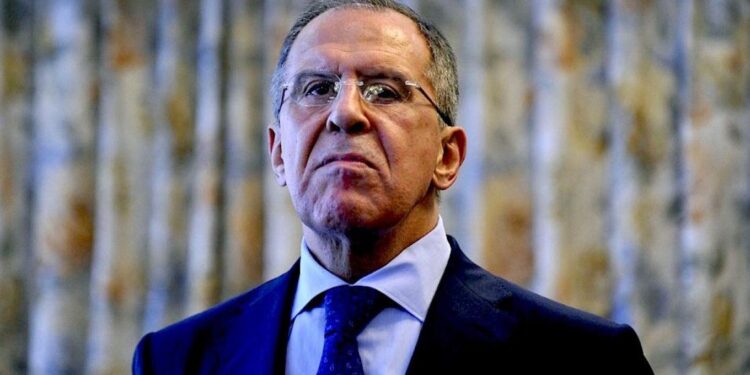by Miceál O’Hurley
CHIȘINĂU — In a blunt response to the latest, and most explicit threat made to Moldova’s sovereignty by the Russian Federation the Ministry for Foreign Affairs and European Integration in Chisinau released a statement Thursday saying, “We categorically reject the statement by the head of Russian diplomacy, which does not correspond to reality, and is part of the already well-known threatening rhetoric of Russian diplomacy”. Earlier, Russian Federation Minister for Foreign Affairs Sergey Lavrov said the West had “set its sights on the Republic of Moldova to have the role of the next Ukraine“. Such an explicit threat conveyed Russia’s bellicose claims about their willingness to escalate tensions with their neighbours and throughout Europe. Russia continues to claim their “special military operation” in Ukraine was necessary for self-defense — all evidence to the contrary. Lavrov also criticised Moldova for declining to re-enter the 5+2 format negotiations where resolution of the Transnistria occupation by Russia was previously discussed. Again, blaming NATO and the EU, Lavrov claimed Moldova’s refusal to explore a diplomatic resolution in the 5+2 format was further proof of Moldova’s bad intent and the West’s meddling in regional affairs.
According to Lavrov, Moscow views Moldova’s continued assertion of sovereignty and further integration with Europe as a threat to Russian security. Such a view was promulgated widely in Ukraine prior to Russia’s 2014 invasion of Donbas and widened invasion of the Ukrainian interior in 2022. Moscow, which has illegally occupied Moldova’s Transnistria Region by military occupation despite Moldova declaring independence in March 1992. The Moldovan Declaration of Independence asserts Moldovan sovereignty over the territory of Transnistria as an integral ” component part of the historical and ethnic territory of our people”.
Transnistria is internationally recognised as sovereign Moldovan territory with the exception of only 3-equally unrecognised ‘states’, Abkhazia, South Ossetia and Artsakh. In 2018 the United Nations adopted Resolution A/72/L.58 which called for the “Complete and unconditional withdrawal of foreign military forces from the territory of the Republic of Moldova, including Transnistria“.
By warning Moldova risked becoming the “next Ukraine” Lavrov stoked anxiety across Europe that Russia’s thirst for imperial expansionism remained, despite their failing war in Ukraine. Clothing Russia’s argument in terms of fighting what they characterise as the threat of ‘fascism”, Lavrov spoke to assembled Russian State media outlets Thursday saying, “The West has already set its sights on the Republic of Moldova… it has a President who wants to join NATO, has Romanian citizenship, is ready to unite with Romania and, in general, she is ready for almost anything.”
Interviewed on Politico’s EU Confidential podcast, Moldova’s President, Maia Sandu, said, “There is a serious discussion in the society, about our capacity to defend ourselves — whether we can do it ourselves, or whether we should be part of a larger alliance”. She added, “It’s not Moldova which started a war against its neighbors … Now that we see the Russian aggression against Ukraine, we understand how serious this is, and we understand that we need to make the defense sector a priority.” Sandu has repeated cited Russia’s use of hybrid warfare in exploiting “corrupt groups and some political groups to destabilise” Moldova.
One military scenario that concerns Moldova and European analysts would be an attempt by Russia to extend their occupation of southern Ukraine across the Black Sea. Such a move would not only further economically damage Kyiv and provide land-based platforms upon which it could extend artillery or missile fire into the Ukrainian heartland but it would create a land-bridge between Russian-occupied territories in Ukraine and Russian-occupied Transnistria in Moldova. Establishing such a geographical corridor could further endanger Ukraine’s security and further Russian threats against Moldova all while advancing Russia’s attempt to destroy Ukraine.
















































